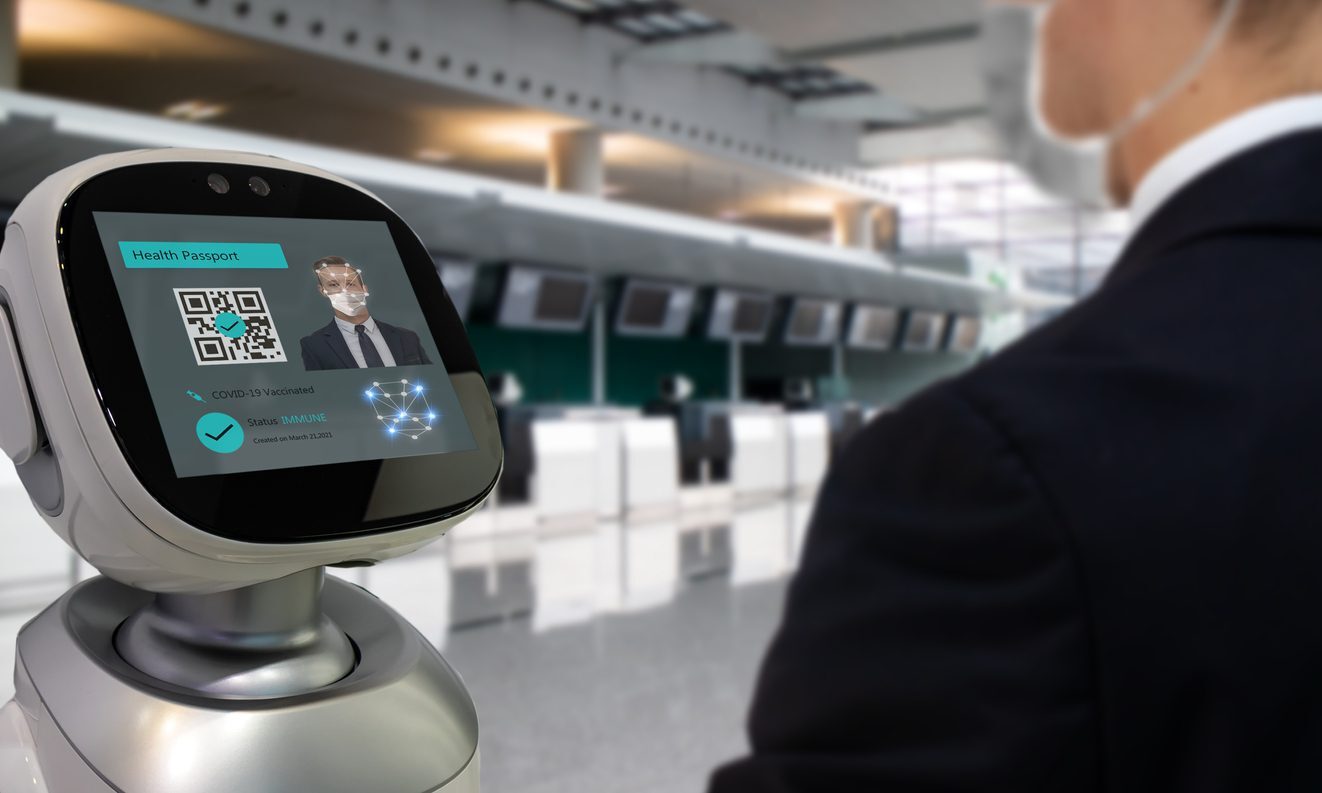How are the latest technology trends impacting corporate travel?
Corporate travel is a crucial part of most successful businesses. It allows companies to stay connected and build relationships. Since the pandemic, customer expectations have shifted. There is an increased demand for flexibility to delay purchase, refund, or change travel plans at short notice without penalty. Businesses expect clear and easy options for buying travel and they expect their travel suppliers to adapt to their business requirements. These are just some of the factors that help create a positive experience for corporate travelers today.
Keeping up with the latest technology innovations within the corporate travel industry is imperative as well. Technology is now involved in day-to-day operations, while also improving the customer experience. Innovations that allow for digital and contactless experiences are here to stay. Innovations that automate travel, save time, reduce cost, and create a more seamless travel experience during all aspects of the trip are being implemented. New technology can help eliminate human error and improve accuracy and convenience. Let’s look at some of the latest tech trends being used in corporate travel.
What are the top technology innovations?
Over the last ten years, airlines have eliminated the need for juggling tickets, maps, boarding passes, and receipts, thanks to internet-based resources that revolutionized flight planning. Even more recently, innovative ideas have come to life to make travel safe and more efficient.
- Mobile apps – Mobile solutions make it easy to show verified vaccination and test status. They hold a traveler’s boarding pass and itinerary all in one place. The app can also update the traveler on changes to travel arrangements.
- Voice Search & Voice Control – Voice search can be used to find and book airline tickets, hotel rooms, and travel experiences.
- AI Chatbots – Chatbots provide customers with quick and helpful answers to questions 24 hours a day. This is crucial when trying to keep up with current customer expectations. Technology advancements have made modern chatbots good at responding to more and more interactions. Chatbots are efficient at answering questions and passing on information while simultaneously learning from each interaction with a customer.
- Robotics – This exciting form of travel technology is still constantly improving. It is not uncommon to find robots taking on concierge roles greeting guests and provide important travel information. Some can be used for cleaning and luggage handling as well. In airports, robots are used to detect concealed weapons. They are being utilized during pre-screening, making wait time shorter for customers. Robots can help reduce the potential need for human-to-human contact while providing better safety and control across the entire travel experience.
- Contactless technology – Travelers no longer need to handle cash or credit when traveling with contactless payments. This is a time saver, as well as a safety measure. Touchless services through sensors, facial recognition, and modern biometrics have been put in place in airports and travel hubs to allow for better safety and control over passenger traffic. Touchless technology provides confidence and security for travelers.
- Virtual Reality – Using virtual reality, travelers can experience virtual hotel tours, restaurants, landmarks, and specific activities. This immersion into an experience from the comfort of their home helps complete a booking. This is a helpful technology for travelers that are reluctant to travel or that are trying to decide where to stay.
- Augmented Reality – This involves augmenting a person’s real surroundings rather than replacing them. It is cheaper than virtual reality. This technology is also more accessible since users only require a smartphone or tablet device with access to the internet. Augmented reality apps provide customers with valuable information and can guide people through expansive airports to their designated gate.
- Internet of Things (IoT) – This is the internet-based interconnectivity between everyday devices, allowing them to send and receive data. IoT in an airport will allow luggage cases to have sensors installed that will alert passengers when they pass by. This helps with swift luggage retrieval.
- Recognition Technology – This technology makes interactions seamless. It includes fingerprint recognition, facial recognition, and retina scanning. Airports and train stations can identify customers and verify identities that can reduce identity thefts and frauds. Using facial recognition and other biometrics will also reduce check-in time.
- Big Data – Modern tourism relies on data. Big data is a term used to refer to large data sets that are too big to be processed through more traditional processing methods. Data allows for companies to improve personalization and adjust offerings. Organizations can also use big data for predictive purposes and to analyze current business performance.
Technology is constantly changing and improving the travel process. These innovations continue to impact the way corporate travel works. Customer loyalty and market share will go to those in the travel industry that stay relevant and continue to respond to the public’s evolving needs.
The industry needs to help businesses make every journey worth the trip. Cornerstone Information Systems is here to help make that happen. CIS is the technology partner behind the scenes of tens of millions of automated bookings. Our technology helps you configure workflow and services that deliver measurable savings and insights to manage your travel program and operations.
Ready to learn how you leverage our solutions for your success? Join the more than 600 companies with more than $2 billion in travel spending that depend on us for the success of their travel program. Contact Cornerstone today to learn more.
